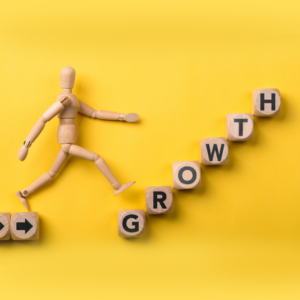

- CCG
Building Rock-Solid Resilience Through Self-Regulation: A Guide for Veterinary Professionals


Building Rock-Solid Resilience Through Self-Regulation: A Guide for Veterinary Professionals

- CCG
The veterinary profession challenges and rewards in equal measure. Every day, you face long hours, tough decisions, and emotionally charged moments. These challenges can easily wear you down if you don’t have strategies to manage them. That’s where self-regulation comes in. Self-regulation gives you the tools to take control of your emotions, thoughts, and behaviours, helping you build resilience—the ability to bounce back, adapt, and thrive in the face of stress.
Resilience, often described as the ability to adapt and recover from challenges, begins with self-regulation. By managing how you respond to challenges, you stay calm under pressure, make clearer decisions, and recover more quickly from setbacks. Whether you work as a veterinarian, nurse, or part of the support team, self-regulation equips you to handle the demands of your job while protecting your well-being.
Let’s explore the powerful connection between self-regulation and resilience, and how these skills can help you not just survive the demands of veterinary practice, but truly thrive.
What Is Self-Regulation?
Self-regulation means managing your internal state so you can respond, not react, to life’s challenges. It allows you to choose how you show up—whether in a difficult conversation with a client, a high-stress medical situation, or after an unexpected setback. By regulating your emotions and actions, you stay aligned with your goals and values.
When you practice self-regulation, you boost your resilience. You recover faster from stressful situations, approach problems with a clear head, and maintain energy for the work you love.
How Self-Regulation Builds Resilience
Self-regulation strengthens resilience in several key ways:
- You Stay Calm Under Pressure
When emotions run high, you pause and respond thoughtfully instead of reacting impulsively. This calm approach improves decision-making and helps you remain effective in stressful situations. - You Recover Quickly
By managing how you process challenges, you reduce the emotional weight of setbacks. This lets you bounce back with renewed focus and confidence. - You Keep Energy Levels in Check
Self-regulation helps you recognise when to push forward and when to pause. By finding balance, you avoid burnout and sustain your performance.
Strategies to Build Self-Regulation
Building self-regulation requires practice and commitment. Here’s how you can get started:
- Pause and Breathe
When faced with a stressful moment, pause and take a deep breath. This simple step creates space for you to think clearly and respond with intention. - Practice Mindfulness
Engage in mindfulness exercises like deep breathing, meditation, or grounding techniques. These tools help you stay present, reduce stress, and manage emotions effectively. - Set Realistic Expectations
Accept that perfection isn’t always possible. Instead, focus on doing your best and learning from challenges. This mindset keeps you from unnecessary self-criticism. - Reflect Regularly
Take a few minutes each day to think about how you handled difficult situations. Celebrate your wins and identify areas for growth. Regular reflection builds self-awareness and helps you improve. - Lean on Your Support Network
Share your experiences with trusted colleagues, mentors, or friends. A strong support system reminds you that you’re not alone and provides valuable perspective during tough times. - Focus on What You Can Control
Instead of worrying about unpredictable outcomes, channel your energy into areas you can influence, such as preparation, communication, and professionalism. - Recharge in Healthy Ways
Find activities that help you unwind and recharge, like exercise, hobbies, or journaling. Healthy coping mechanisms allow you to restore balance and maintain your mental health.
Related: Leading Well: Prioritising Your Wellbeing as a Leader
Why Self-Regulation Matters for Your Team
When you regulate your emotions and actions, you don’t just help yourself—you elevate your entire team. Self-regulation fosters a positive work culture, reduces conflicts, and improves how your team handles challenges together. Teams that practice self-regulation stay focused, support one another, and perform better under pressure.
Resilience Is a Journey
Resilience and self-regulation aren’t things you master overnight. They’re skills you build over time through intentional practice. Every time you choose to pause, reflect, or manage your emotions, you strengthen your ability to handle stress and grow from it.
As you continue to develop these skills, you’ll not only improve your personal well-being but also make a lasting, positive impact on your patients, clients, and colleagues. Self-regulation helps you face challenges with confidence, recover from setbacks, and create a fulfilling career in veterinary medicine.
Start small. Take a breath. Reflect on your progress. With consistent effort, you can transform how you approach challenges and build a resilient, thriving future.
Related: Nurturing Resilience: A Guide to Building a Mentally Strong Team
Partner with Crampton Consulting Group
At Crampton Consulting Group, we understand the unique challenges veterinary professionals face. Our tailored workplace training, coaching programs, and professional development events equip you and your team with the skills needed to thrive in high-pressure environments. Whether you want to strengthen self-regulation, build resilience, or enhance team collaboration, we’re here to help. Contact us today to discover how we can support you and your team on the path to lasting success.


